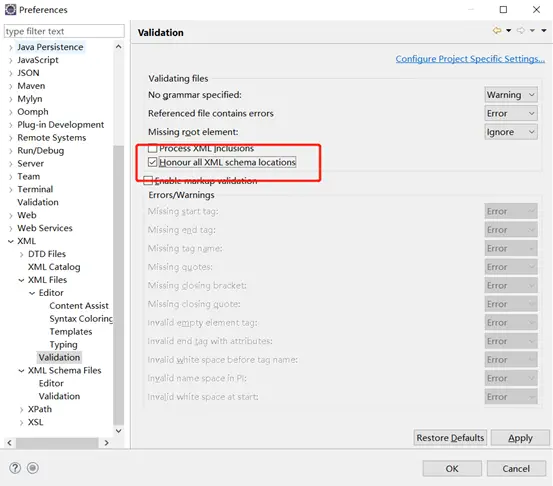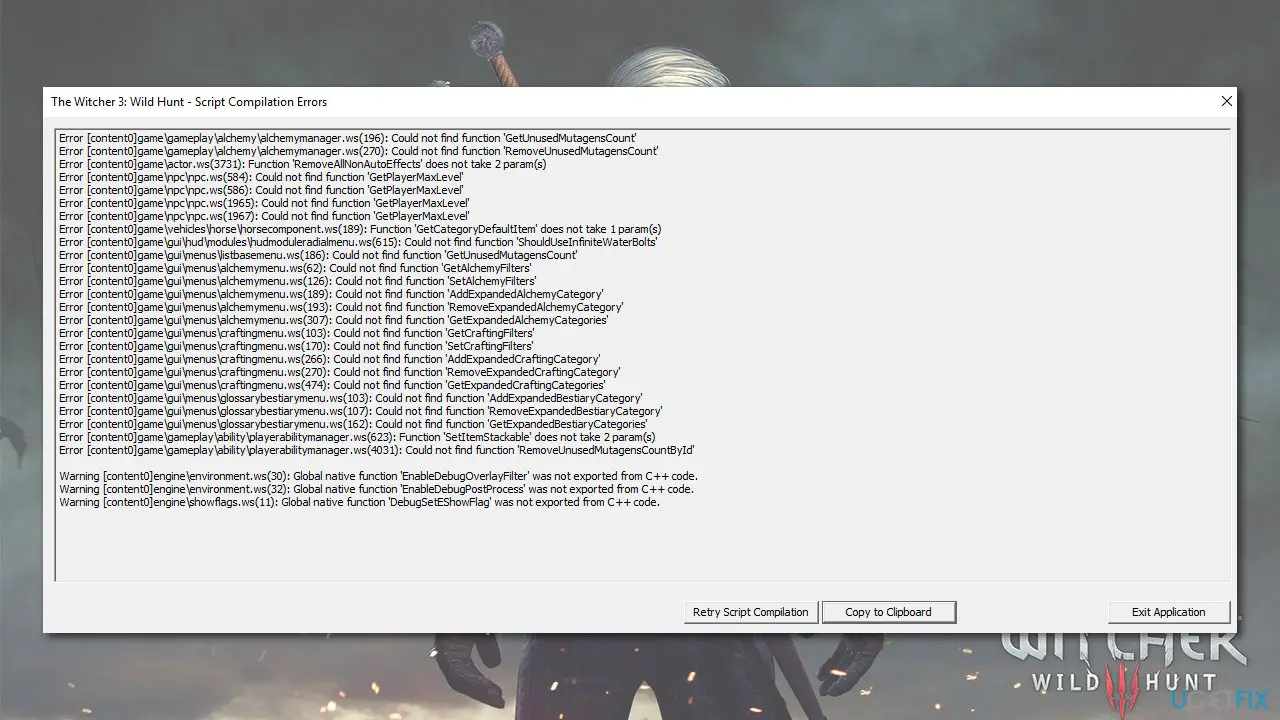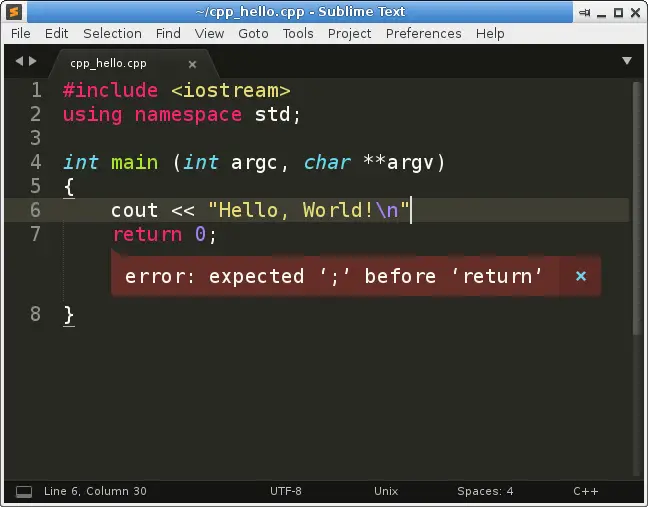Understanding Cs0016: Compilation Errors Due To Invalid Output Paths

In the world of programming, errors are inevitable, and C# is no exception. Cs0016 is a compilation error that developers may encounter when working with C#, specifically related to invalid output paths. This error occurs when the compiler tries to write the output of the compilation process, such as an executable file or a library, to a path that is invalid or inaccessible.

Causes of Cs0016:

-
Incorrect Output Path: The most common cause of Cs0016 is specifying an incorrect output path in the project’s properties. Developers may have mistyped the path, or it may no longer exist.
-
Invalid Permissions: Another possible reason for Cs0016 is insufficient permissions on the output path. The compiler might lack the necessary permissions to write to the specified location.
-
Invalid Characters in Path: Certain characters, such as spaces or special symbols, are not allowed in file paths. Using these characters in the output path can result in compilation errors.
-
Network Issues (for Shared Drives): If the output path is located on a shared network drive, network connectivity issues may cause the compiler to fail to access the path.
Resolving Cs0016:
-
Verify Output Path: Double-check the output path specified in the project properties. Ensure that it is correct and corresponds to an existing, accessible directory.
-
Grant Permissions: If the output path is a network share, grant appropriate permissions to the user account running the compiler. Make sure the account has write access to the directory.
-
Avoid Invalid Characters: Refrain from using spaces or special symbols in the output path. Stick to alphanumeric characters and underscores.
-
Check Network Connectivity: For shared network drives, verify that the network connection is stable and that the shared folder is accessible. Restarting the compiler after resolving network issues might fix the problem.
-
Change Output Path: As a last resort, consider changing the output path to a different location. Choose a path that is local to the machine or a shared drive with the necessary permissions.
Additional Tips:
-
Use Absolute Paths: Instead of relative paths, use absolute paths for the output directory. This eliminates the possibility of mistyping or incorrect relative paths.
-
Clean and Rebuild: Sometimes, cleaning and rebuilding the project can resolve compilation errors, including Cs0016. Right-click on the project in Visual Studio and select “Clean” followed by “Rebuild”.
-
In-Depth Error Messages: Enable detailed error messages in the project’s properties. This can provide more context about the specific cause of the Cs0016 error.
-
Seek Community Support: If the issue persists despite trying the mentioned solutions, seek help from online forums or C# developer communities. Sharing the complete error message and relevant project details can help others identify the root cause.
By understanding the causes and following the resolution steps, developers can address Cs0016 compilation errors related to invalid output paths effectively.# Understanding Cs0016: Compilation Errors Due to Invalid Output Paths
Executive Summary
This comprehensive guide offers a thorough understanding of the Cs0016 compilation error that typically arises from invalid output paths. It delves into the nuances of the error, providing practical solutions and insights to help developers navigate this issue effectively.
Introduction
The Cs0016 compilation error is a commonly encountered hurdle for developers working with C#, signaling an invalid output path. This error occurs when the compiler fails to locate or access the specified output path, hindering the successful compilation and execution of the program. To rectify this situation, it is crucial to identify the root cause of the error and implement appropriate measures to rectify it.
Subtopics
-
Error Message:
- The Cs0016 error is typically accompanied by an error message that provides additional context, such as specifying the invalid output path.
- The error message often includes the path to the problematic project file (.csproj) along with the invalid output path.
- Understanding the error message is crucial for identifying the exact location and nature of the issue.
-
Common Causes:
- Invalid or non-existent output path: This is the most common cause of the Cs0016 error. It occurs when the output path specified in the project file does not exist or is inaccessible.
- Incorrect project configuration: Misconfigurations in the project properties, such as an invalid platform target or build configuration, can also lead to the Cs0016 error.
- Antivirus software: Antivirus programs may occasionally interfere with the compilation process, causing the Cs0016 error.
- Insufficient permissions: Ensure that you have sufficient permissions to write to the specified output path.
-
Troubleshooting Steps:
- Verify the output path: Double-check the output path specified in the project file to ensure it is valid and accessible.
- Review project configuration: Inspect the project properties to verify that the platform target and build configuration are correct.
- Disable antivirus software: Temporarily disable any antivirus programs to determine if they are causing the Cs0016 error.
- Grant permissions: Ensure that the user account has write permissions to the specified output path.
- Consult documentation: Refer to the official C# documentation or online resources for additional guidance on resolving the Cs0016 error.
-
Alternative Output Paths:
- Temporary output folder: Consider using a temporary output folder within the project directory to avoid potential issues with permissions or path conflicts.
- Network shares: If necessary, map network shares as drive letters to simplify access and eliminate potential issues with UNC paths.
- Absolute paths: Always use absolute paths instead of relative paths to avoid ambiguity and ensure the compiler can locate the output path correctly.
-
Best Practices:
- Use meaningful output paths: Choose descriptive output paths that are easy to understand and locate.
- Avoid spaces in paths: Spaces in paths can introduce parsing issues, so it is advisable to avoid them whenever possible.
- Test output paths: Before committing code changes, always test the output paths to ensure they are valid and accessible.
Conclusion
The Cs0016 compilation error can be effectively addressed by understanding its common causes, implementing appropriate troubleshooting steps, and adhering to best practices. This comprehensive guide provides a solid foundation for developers to resolve the Cs0016 error efficiently and optimize their compilation process.
Keyword Phrase Tags
- Cs0016 Compilation Error
- Invalid Output Paths
- C# Programming
- Compilation Issues
- Visual Studio

_This article suc_ks..
I think this article explains really clearly on what we should do with the error Cs0016.
_uyshgfdsg.,..uyfgfrse_hg, Amazing article! 👍👍👍
emm? Cs0016 doesn’t mean that we don’t have the permission to access the file? .. In my opinion, this may cause by other reasons too..
The 13th line doesn’t make any sense to me. There’s a syntax error!
Hey, can I ask a question? How to solve the error: the type or namespace cannot be found (are you missing a using directive or an assembly reference?)
OMG!!! I have been struggling to solve the problem for days!!! Thanks for sharing this informative article.
Using the ; at the end of a statement is incorrect. Did you miss learning the basics at school?
I spent 1 hour on reading this. It’s a good read! You should give it a try. 😋
This article is totally wrong! I tried the methods it provided and it messed all my codes up.
It would be better if you can provide more examples.
the rEAsOn I wROte LikE tHiS iS tO sAy THaT yOU sHOulD nOT TYpe liKE THis. 🙄
This is an awesome article! It helped me to fix my code and also expanded my knowledge about C#. Thank you!